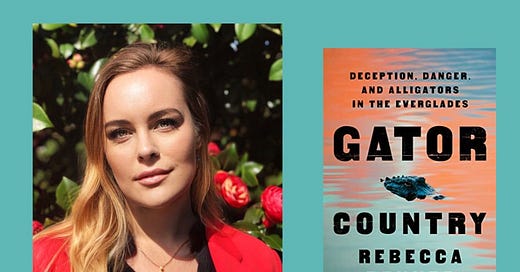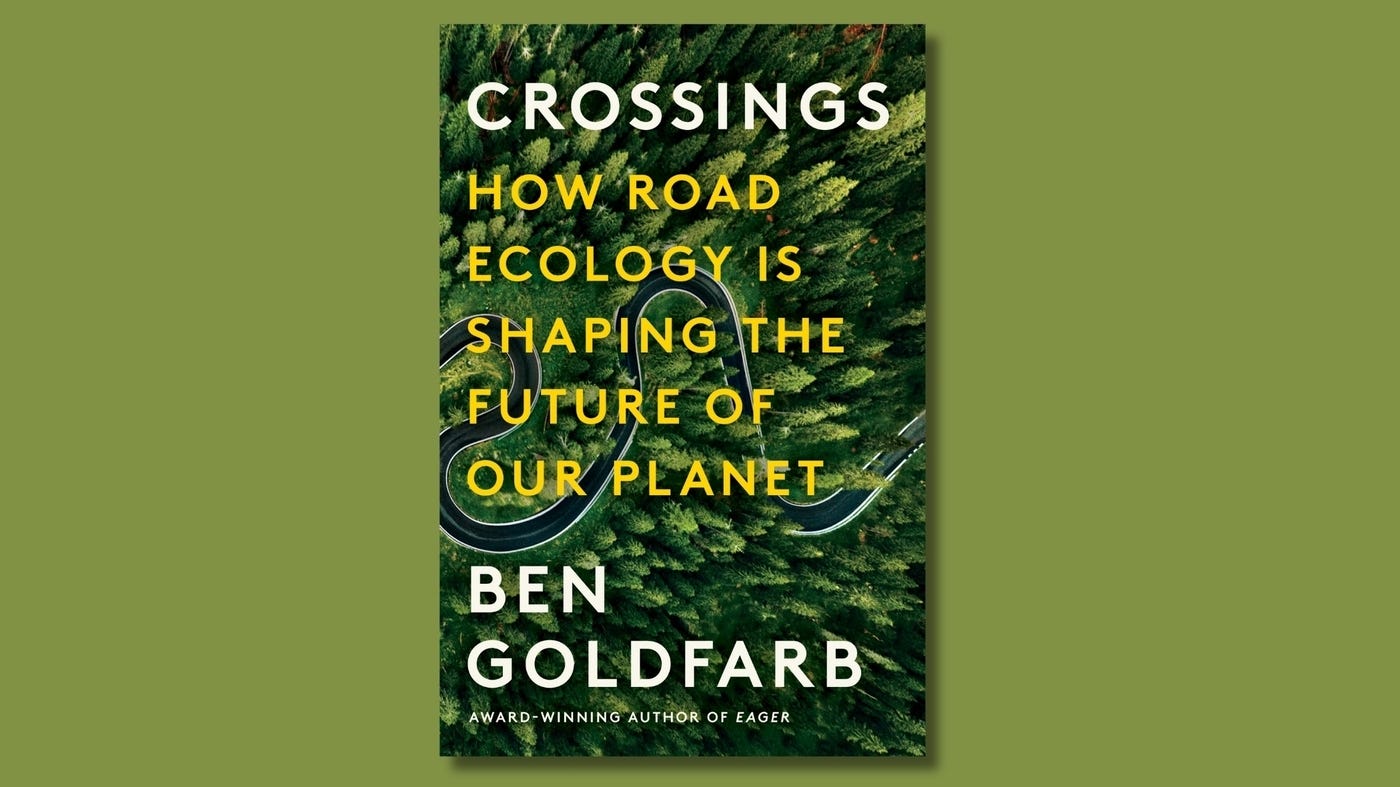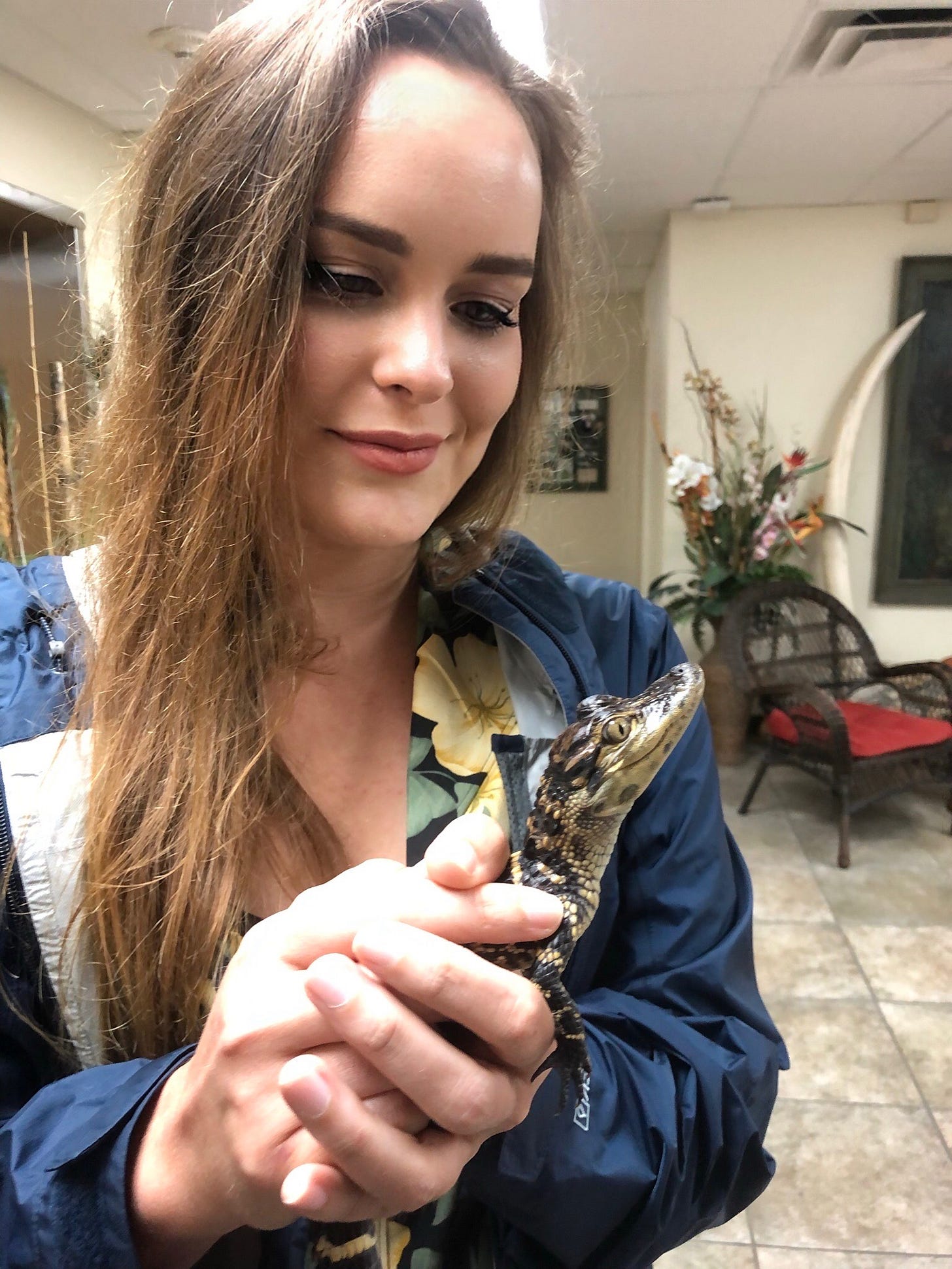The truth is often stranger than fiction.
The first time I heard the story of Operation Alligator Thief, it came to me as a rumor from one of my high school students.
Howdy Friends,
Hold onto your horses… Gator Country was included in “The Big Fall Nonfiction Roundup” from Goodreads (alongside books by Tracy K. Smith, Hannah Stowe, Ben Goldfarb, and Lisa Perrin). There are so many good books coming out at the end of this year, and I am honored that mine is one of them!
Additionally, I'm LibraryThing's featured author of the month. In our interview, we spoke about what makes the Everglades such a special place, the human story of alligator poaching, and what books I’m currently reading. I also spoke a great deal about my experience writing Gator Country, which I’m including a selection of below:
Set in the Florida Everglades, Gator Country follows the exploits of a Florida Fish and Wildlife officer, as he goes undercover to infiltrate the world of alligator poachers. How did you discover this story and what drew you to it? Did you meet Jeff Babauta first, or did you come across him in the course of researching the broader topic?
The first time I heard the story of Operation Alligator Thief, it came to me as a rumor from one of my high school students. He and I had already been talking about poaching, storytelling, and thornier questions like, “Who owns nature? Is it right for anyone to make that claim?” When this student told me about Operation Alligator Thief, the rumors had blown some facts of the case out of proportion while entirely underplaying others. He described the undercover officer as a shapeshifter who had created a fake alligator farm to catch poachers, like a trap out of a movie. In other words, it all sounded too bizarre to be true. Yet, as Floridians, my student and I knew better: here, the truth is often stranger than fiction.
Wanting to know what really happened, we asked around about the story, but neither of us could find a trace of the officer behind it all. He had disappeared before the sting began, and no one without inside information could find him. In my journalism career, I’ve found that challenges, rather than discouraging me, compel me to try harder and to look deeper. So no matter how many challenges I faced with this story, I could never quite let it go. A few years later, after I had quit teaching to write full-time, a former intelligence operative helped me track Jeff down, and I talked to him on the phone several times before he opened up enough to really tell me his story. It’s almost funny to look back on the days when Jeff didn’t trust me yet because now he’ll text me out of the blue like it’s no big deal—because it isn’t! That’s fresh in my mind because he texted me right before I sat down to do this interview.
And finally, I’m thrilled to announce that I will be talking about Gator Country at the upcoming Miami Book Fair. For eight days in November, the Miami Book Fair transforms downtown Miami into a literary wonderland hosting hundreds of critically acclaimed authors, and I’m so excited to be included. Hope to see you there!
Thanks for reading,
Rebecca
A book that I think would pair well with Gator Country is Crossings by Ben Goldfarb, which just came out in September of this year. I don’t explicitly talk about road construction’s impact on wildlife in Gator Country, but that’s just fine, because Ben has it covered from every possible angle. I’m including the book’s description below for your consideration:
Some 40 million miles of roadways encircle the earth, yet we tend to regard them only as infrastructure for human convenience. While roads are so ubiquitous they're practically invisible to us, wild animals experience them as entirely alien forces of death and disruption. In Crossings, environmental journalist Ben Goldfarb travels throughout the United States and around the world to investigate how roads have transformed our planet. A million animals are killed by cars each day in the US alone, but as the new science of road ecology shows, the harms of highways extend far beyond roadkill. Creatures from antelope to salmon are losing their ability to migrate in search of food and mates; invasive plants hitch rides in tire treads; road salt contaminates lakes and rivers; and the very noise of traffic chases songbirds from vast swaths of habitat.
Yet road ecologists are also seeking to blunt the destruction through innovative solutions. Goldfarb meets with conservationists building bridges for California's mountain lions and tunnels for English toads, engineers deconstructing the labyrinth of logging roads that web national forests, animal rehabbers caring for Tasmania's car-orphaned wallabies, and community organizers working to undo the havoc highways have wreaked upon American cities.
That’s all for this week, folks! Preorder Gator Country!








